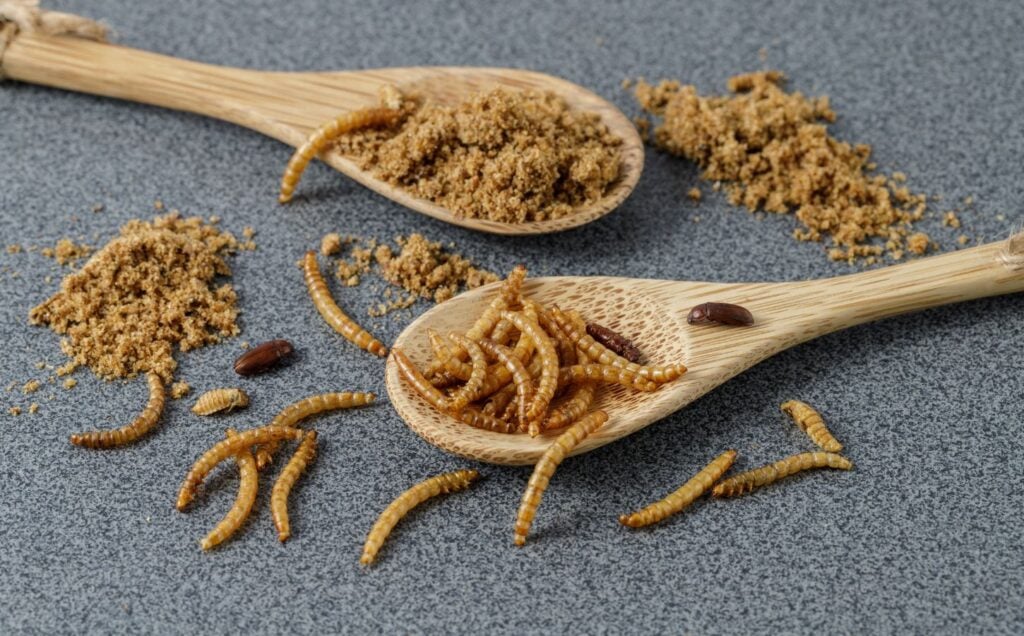The European Commission has approved two more varieties of insect protein for human consumption.
House crickets and lesser mealworm larvae (which resemble maggots) are now both allowed to be sold as “novel foods” within the EU.
The latter can be sold in dried, frozen, paste, and powder formats. Crickets can only be offered as a partially defatted powder ingredient.
The insect protein will not be enforced on menus. Nor will it be secretly added to foods – the European Commission confirmed that the newly approved insect ingredients must be labeled as such.
“It is up to consumers to decide whether they want to eat insects or not. The use of insects as an alternate source of protein is not new and insects are regularly eaten in many parts of the world,” the European Commission wrote in its approval documentation.
The Commission has a further eight insect protein varieties currently awaiting approval for consumption by humans.
Insects are suggested as a future-proof food source due to their composition. It is estimated that for edible insects, between 35 and 60 percent of their dry weight is protein. This means that at the lower range, they are likely to offer more than some plant sources, including soybeans. At the higher end of the spectrum, they provide more protein than traditional meat and eggs.
How sustainable is insect protein, really?
Eating insect protein is being hailed as a potential way for humans to cut their diet-related climate impact.
The claim is largely predicated on the fact that insects require far fewer resources to be farmed. Needing less land, feed, and water than traditional livestock farms, insect production facilities are deemed more sustainable.
Despite producing comparable or superior amounts of protein to livestock, insects would need to be produced in vastly larger numbers. This would naturally lead to industrialized farming techniques, such as mega farm facilities. In turn, these could see the sector’s footprint drastically increase.
This will become even more pertinent when the global population reaches 10 billion, which is currently predicted for 2050. At this point, experts predict that the world will be unable to provide enough protein for everybody. This stands for our current food system, which relies heavily on animal protein.
The sentience of insects
Animal rights campaigners remain against the use of all animals in the food chain.
“Our knowledge about all forms of life is increasing rapidly, including our understanding of the lives of insects. From the way ants farm underground to feed millions in their colonies and construct elaborate living structures to how bees communicate complex directions and produce and use antibiotics, and much more,” PETA’s vice president of programmes Elisa Allen told Plant Based News.
“Of course, everyone already knows that all animals, whether on four legs or six, value their lives. There’s no need to swallow wriggling grubs and make burgers out of minced crickets when what we urgently need to do – for the sake of the planet and all species, including our own – is to stop trying to eat our way through the animal kingdom and embrace a vegan lifestyle.”
As alluded to by Allen, there is mounting evidence that insects are sentient. If proven, this could impact the way they are reared in the future.






